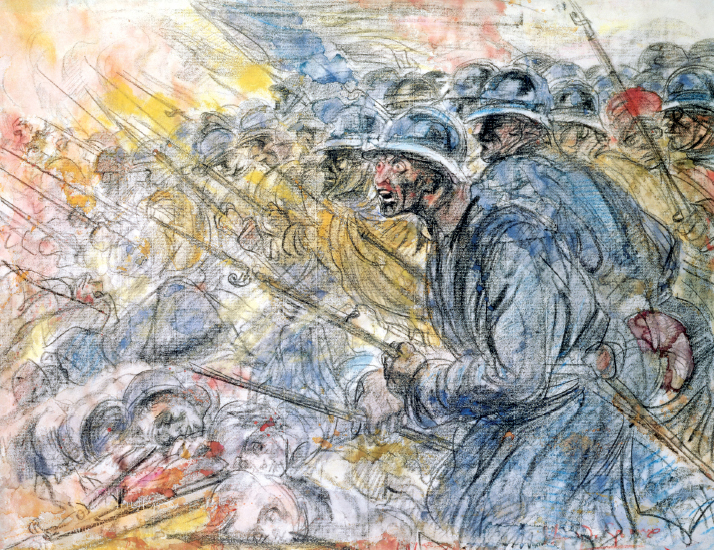Understanding World Societies:
Printed Page 846
> What were the long-term and immediate causes of World War I, and how did the conflict become a global war?

Henri de Groux, The Assault, Verdun
An eerie portrayal by Belgian artist Henri de Groux (1867–1930) of French troops moving forward in a thick haze of smoke and perhaps clouds of diphosgene, a poisonous gas first used by the Germans at Verdun on June 22, 1916. (Musées des Deux Guerres Mondiales, Paris, France/The Bridgeman Art Library)
An eerie portrayal by Belgian artist Henri de Groux (1867–
TTHE FIRST WORLD WAR CLEARLY MARKED a major break in the course of world history. The maps of Europe and southwest Asia were redrawn, nationalist movements took root and spread across Asia (see Chapter 29), America consolidated its position as a global power, and the world experienced, for the first time, industrialized, total war. Europe’s Great Powers started the war and suffered the most. Imperialism also brought the conflict to the Middle East, Africa, and Asia, making this a global war of unprecedented scope.